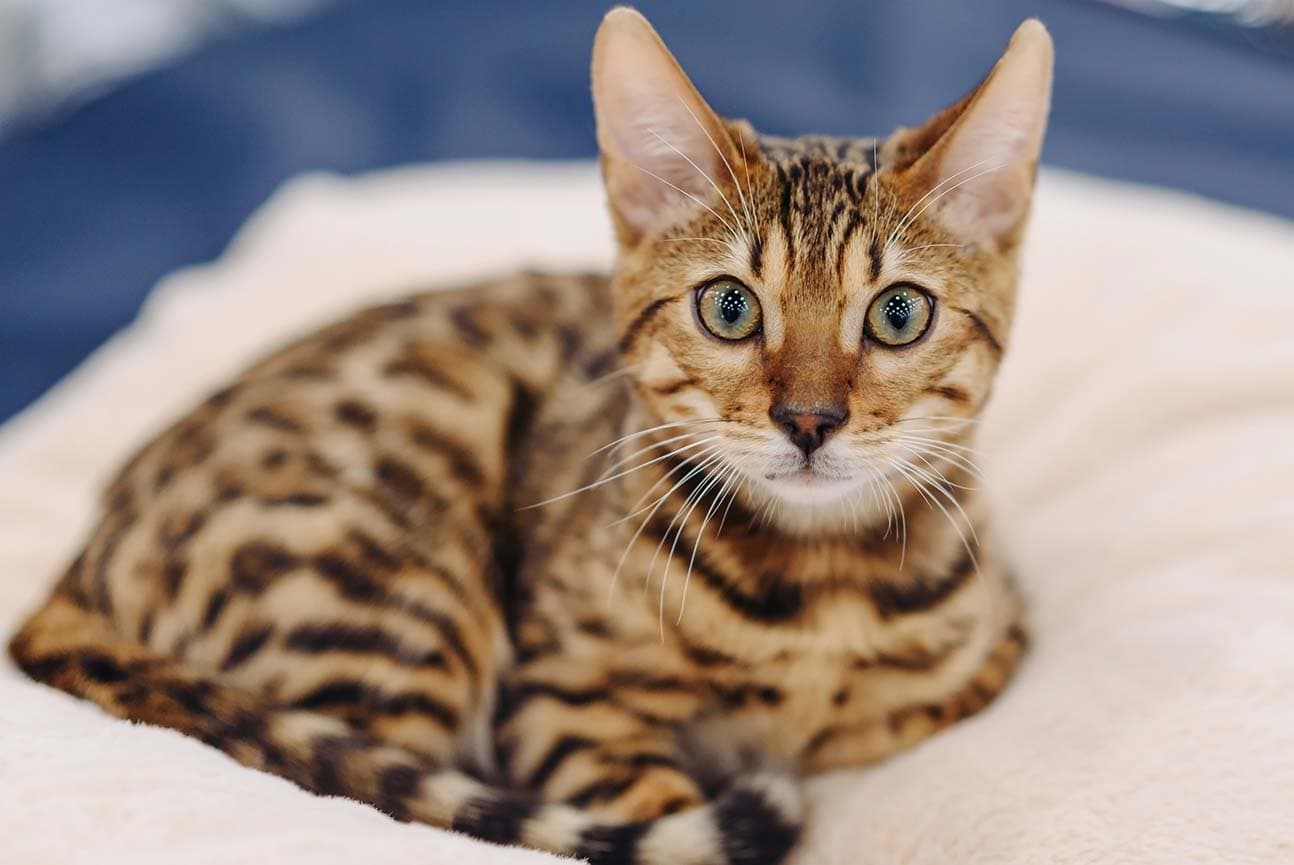Reviewed by Dr. Kiran Radhakrishnan
Updated on 13/10/2025
Reading time 4 min.
Overview
Severity: Low
Life stage: All
Allergies are a common health issue in cats. In Dubai, year-round heat, high humidity, frequent dust storms and heavy reliance on air conditioning create unique challenges for your cat’s health.
Cats in Dubai are typically kept indoors, but that doesn’t eliminate risks. Allergens circulate inside homes, while parasites and food sensitivities also play a major role.
Cat allergies in Dubai fall into three main categories, but it’s important to note that symptoms overlap between the three, and many cats suffer allergies to more than one of these categories.
- Parasites: particularly fleas, which remain active year-round
- Food allergies: often triggered by dietary proteins in imported foods. Beef, fish, chicken, and dairy are the most common triggers
- Environmental allergies (also called atopy): include indoor dust, mould spores, air conditioning irritants, cigarette smoke, and desert sand carried inside
Any cat, regardless of breed or age, can develop allergies. Symptoms often include persistent itching, overgrooming, and skin inflammation, all of which can reduce your cat’s quality of life. Although allergies can’t be cured, with the right veterinary guidance and consistent management, most cats can live comfortably, even in Dubai’s demanding climate.
Symptoms of Allergies in Cats
Primary symptoms:
- Persistent itching: scratching, biting, chewing or excessive licking/grooming
- Hair loss, often in patches due to overgrooming
- Red, inflamed skin or scabs: especially around the neck, face, inner thighs or abdomen
- A swollen lip or chin
- Small raised bumps or crusts in the skin, called miliary dermatitis: this is often found along the back
- Thickened or darkened skin in chronic (longstanding) cases
Secondary complications:
- Recurrent ear infections: a high risk in Dubai’s heat and humidity
- Watery eyes, sneezing or nasal discharge
- Skin infections from self-trauma due to scratching or grooming
- Digestive issues (vomiting, diarrhoea) in cases of food allergies
Clues from patterns of skin disease
- Flea allergies: irritation along the back, tail base, and thighs
- Environmental allergies: itchy paws, face, neck, ears, and abdomen
- Food allergies: similar pattern to environmental, but may also include digestive upset
Feline Asthma: a particular concern
Some cats develop allergic asthma, a chronic condition where allergens inflame the airways, making it difficult to breathe. The same environmental factors that trigger skin disease may also cause or aggravate wheezing and breathing difficulties in affected cats.
Risk factors for allergies in cats
Climate-related risks
- High humidity encourages mould and dust mites indoors
- Air conditioning circulates dust and particles in enclosed Dubai homes
- Year-round warmth ensures parasites remain a constant concern
Breed predisposition
Some purebred cats are more prone to allergies, including:
- Food allergies: Siamese and Siamese crosses
- Environmental allergies: Burmese, Abyssinians, Maine Coon and Devon Rex
Dubai-specific factors
- Imported diets may contain novel proteins that trigger sensitivities
- Sand and dust particles easily enter indoor environments during sandstorms
- Constant indoor living with artificial air conditioning may weaken your cats’ natural protective skin barrier
How Vets Diagnose Allergies in Cats
Diagnosis requires a step-by-step process to rule out overlapping triggers. Your vet may recommend:
- Blood and urine tests: to rule out underlying disease
- Microscope examination of skin scrapes, hair plucks and sellotape lifts: to detect mites or other parasites
- Fungal cultures: check for yeast or ringworm infections (results may take 3 weeks)
- Food allergy trial: a strict 6–8 week diet using hydrolysed (allergen-free) or novel protein food, with just water and no treats or extras
- Specialised tests: blood tests and specialised skin tests may help to identify specific allergens common in the UAE
Treatments for Allergies in Cats
General products & care
- Omega-3 supplements: strengthen the skin barrier and help to reduce inflammation
- Topical treatments: medicated wipes, mousses or shampoos for itchy or inflamed skin
- Environmental management: HEPA air purifiers and frequent cleaning reduce indoor allergen build-up
- Hypoallergenic bedding: washable materials help minimise allergen exposure
Veterinary treatment
- Anti-itch medications: oral or injectable options to control flare-ups
- Allergen-specific immunotherapy: customised desensitising injections based on specialised test results
- Antibiotics/antifungal medication: treat secondary infections caused by scratching
- Parasite prevention: year-round flea/tick protection tailored for cats
Home Care for Cats with Allergies
- Daily care: wipe down fur and paws to remove dust and allergens
- Environmental management: keep windows closed during sandstorms, vacuum and dust often, and use non-scented cleaners
- Diet: feed a complete, high-quality diet suitable for sensitive cats and avoid frequent diet changes
- Comfort measures: provide cool resting spots and minimise stress (stress can worsen allergies)
Reducing allergy flare-ups in cats
- Parasite prevention: treat every pet in the household all year round
- Home hygiene: wash bedding weekly with non-biological powder, at a minimum wash temperature of 40℃. Clean bowls daily and replace collars regularly
- Grooming: brush weekly to remove loose fur and identify skin issues promptly
- Climate management: avoid letting your cat out onto a balcony or outdoors during sandstorms or high pollen days
When to seek veterinary help
Call a vet immediately if your cat develops any symptoms of severe asthma, including:
- Fast shallow breathing
- Loud wheezing and/or breathing difficulties
- Open-mouthed breathing
- Pale or bluish gums
Seek urgent help from your vet if your cat:
- Is grooming or scratching so much it disrupts daily life
- Has large bald patches, wounds, or painful skin
- Shows signs of infection, including redness, swelling, and pus
- Stops eating or becomes lethargic due to discomfort
Is your cat overgrooming, scratching, or showing signs of allergies? Book a consultation today at Modern Vet Hospital in Dubai. Our skilled team provides:
- Comprehensive allergy diagnostics – from lab tests to diet trials
- Personalised treatment plans – tailored for your cat’s comfort
- Ongoing care – ensuring your cat enjoys a healthier, happier life
From identifying the cause to providing long-term relief, Modern Vet Hospital is your trusted partner in Dubai for managing feline allergies with compassion and expertise.
Share this, choose your platform!
Reviewed by
Dr. Kiran Radhakrishnan
DVM
Born and raised in the United Arab Emirates, Dr. Kiran Radhakrishnan moved to India to pursue a degree in veterinary medicine. She graduated from Veterinary College, Bangalore, in 2022. Throughout her…


